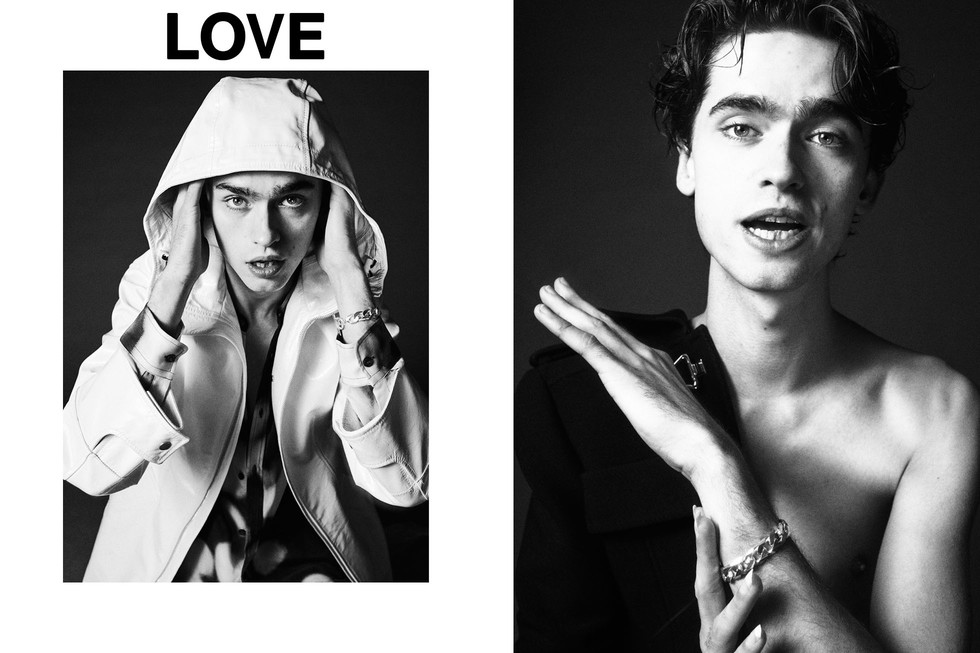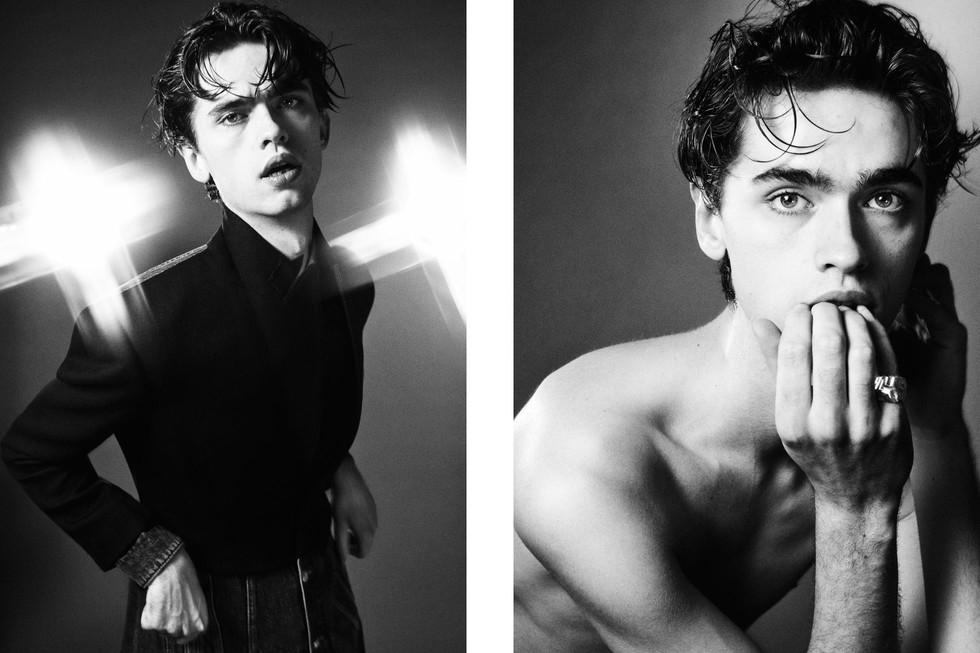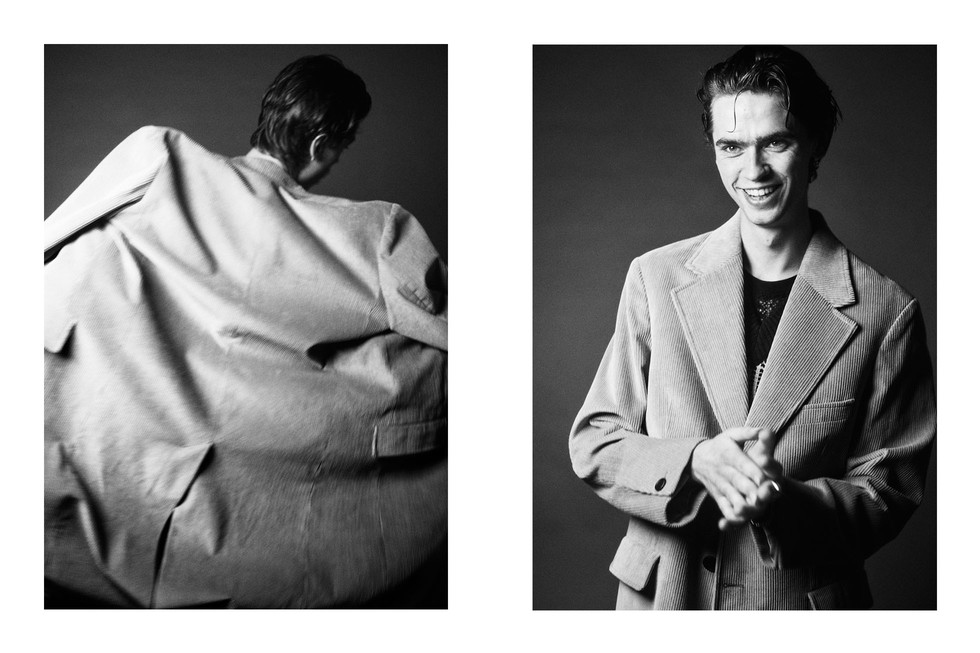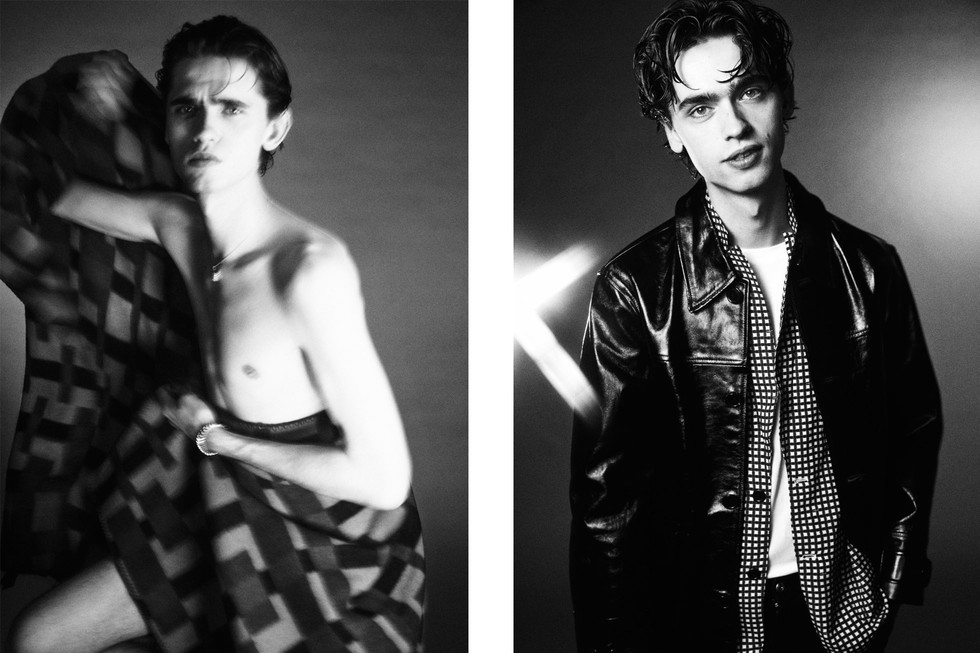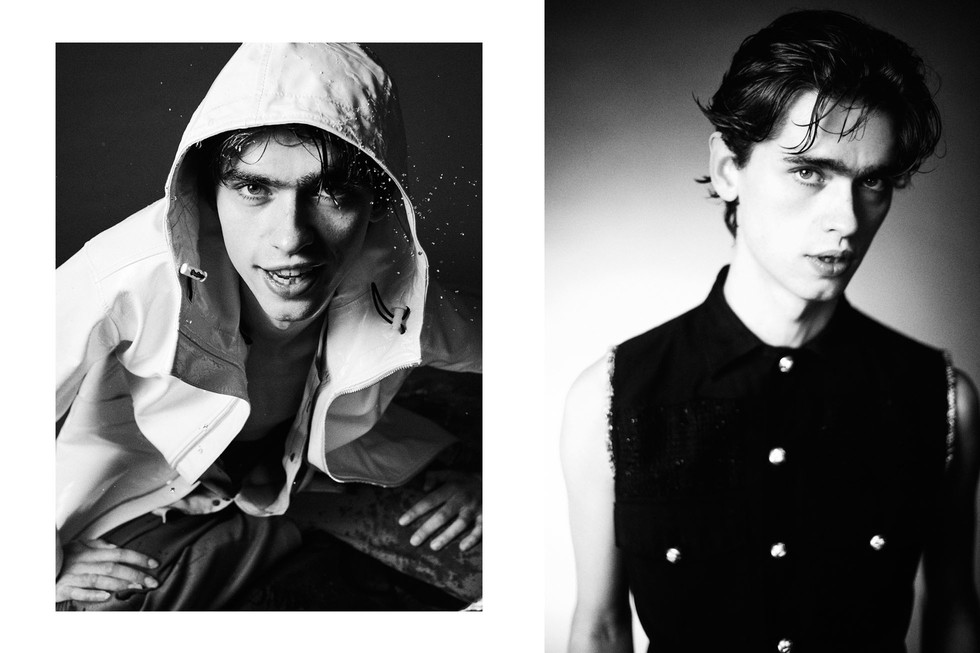SKYND is an electronic-industrial band whose songs are inspired by true crime cases. SKYND consists of two members, the lead singer, SKYND, and producer/multi-instrumentalist, Father. They have spearheaded the genre of true crime music and use menacing visuals and aesthetics in their videos, performances, and attire that help depict the violent nature of these cases. While controversial in their approach, SKYND hope to raise awareness about mental health issues and what leads people to commit these heinous acts. Through their music, they hope that they can prevent similar crimes being from repeated in the future.
How has this pandemic affected you as an artist? Skynd is all about performing and sharing music with people. When you aren’t able to tour I imagine it must be really tough as an artist.
Yes, it was tough in the beginning because we were about to tour the US and Australia. We had to cancel those tours. I went into a dark place and deep depression after that. That dark place inspired me to start investigating new true crime cases, to use the depression to explore my creativity, and use the time to translate these experiences into new music.
The most difficult part about the pandemic was not being able to shoot videos. I felt like I was in “release prison”. I had so much new material that I wanted to shoot videos for and share with my fans but couldn’t due to all the restrictions.
Skynd’s videos are visually striking, detailed and thoroughly thought out. They provide fans with a glimpse into your world and enable them to perceive who you are as an artist. What is the creative process behind your music videos and what are the challenges of making them?
The creative process begins as soon as I write the songs. While I am translating these crime cases into music, I have a vision in my head as to how the video looks in terms of colors and aesthetics. I write down everything that comes to mind, then sit down with the director or producer to develop the visual concept and further build on the idea. It’s important to me that we respect the cases by staying true to facts, and not trying to romanticize anything. When writing about true crime, it’s important to be accurate with our lyrics as to what transpired. Through the video, I want to tell the story from my point of view but not romanticize any facts.
Your niche of subjects you sing about is unique, how did you get into crime stories or murders? What is it that fascinates you?
I think the fascination of morbidity is innate to all of us, programmed in the human condition. Many people enjoy watching cruelty in fictional media, as do I. I like watching true crime documentaries because there’s always the question of motive…what led these people to do the things they did. When my imaginary friend “Skynd” appeared when I was about 3 or 4 years old, he whispered all these horrible stories in my ear. Stories that made me feel like my skin was being peeled off. I started becoming really fascinated by them. I was intrigued because he showed me that we don’t live in a unicorn world. He revealed that there are violent crimes occurring all over the world. This also really interested me in learning more about the human psyche.
When you were a child, what was your state of mind like? What was it like having an imaginary friend who would tell you scary things?
I always had a dark side to me as a child. My imaginary friend, Skynd, is a big part of that. He opened that world up to me. It’s a world I really enjoy living in, which also inspires and fuels my creativity. I enjoyed those morbid crime stories because I wasn’t afraid. I was actually very interested and fascinated by them. I had a TV in my room and sometimes he would turn the TV on. When I was 10 years old he turned the TV on to a documentary about Gary Heidnik. Although the story was scary, I found it so intriguing that I couldn’t stop watching. What would drive a person to do such horrendous things?
What is the creative process behind writing your songs? I imagine it must take a lot of research about these crimes to stay true to the stories, in order to accurately depict the facts through your songs?
It always starts with the crime case. I have a journal where I write notes about all the cases that inspire me and whatever sparks my creativity. I need to have all the facts together to write my lyrics. “Father” is also a part of the creative process, we have a deep understanding of how we work as artists and are able to bring out the best in each other. We bounce and build ideas off each other…and we’re both perfectionists so we’re never satisfied with the song until it meets all our criteria.
How did you and Father meet?
Father and I met in Australia at a bush party [outdoor music festival]. He was sitting on a stone, rocking back and forth. A voice inside my head told me to approach him. So I walked up, sat next to him, and we started talking. We instantly felt a strong connection, I shared my interests in true crime that he was also intrigued by and up until this point I had never met anyone that thinks along the same lines as me creatively and shares the same interests and tastes in music.
The next day we went straight to the studio. It was serendipitous, we worked incredibly well together and had this unexplainable connection, like we were landing on destiny.
What inspires you to write about certain crimes?
It depends on the nature of the crimes and what inspires my creativity. I feel like every human being is capable of committing inhumane cruelties and crimes. I’m trying to shine a light on it and raise awareness about what drives people to commit these acts. I get criticized a lot for writing about these topics. I feel there’s no difference between watching a movie or documentary on Netflix about these topics and what I’m doing, which is writing songs about it. For example, “Michelle Carter” is about a 17-year-old girl texting her boyfriend into suicide. It’s important for me to make people feel comfortable addressing their mental health. Hopefully it will give them the courage to get the help they need, in order to prevent such heinous acts from happening in the future.
How did you come up with the name “Skynd”? Was the name inspired by your imaginary friend?
Skynd appeared when I was really young. I grew up with him and he’s been a major influence and inspiration in the development of my life. When I was searching for a name as an artist he whispered to me…“call yourself Skynd”. When he told me all those horrible stories as a child, I really felt as though my skin was being peeled off. I think the idea for him was that my music should go under your skin and make you feel uncomfortable.

















